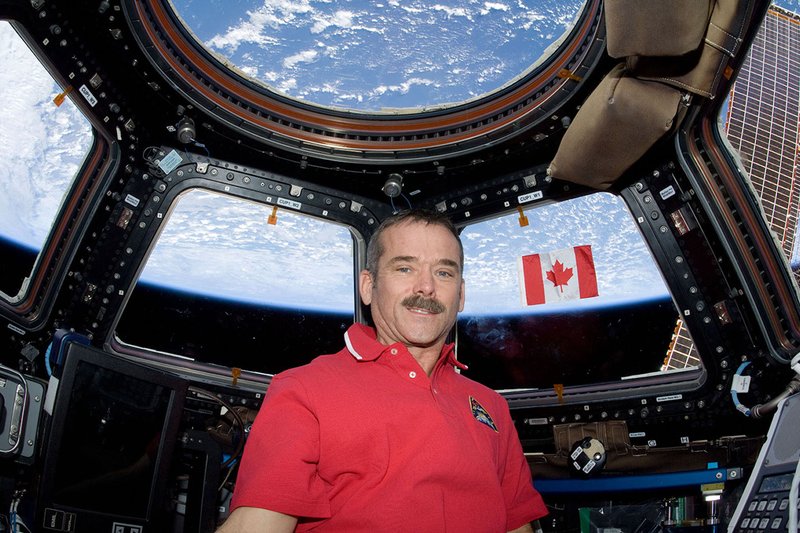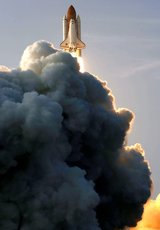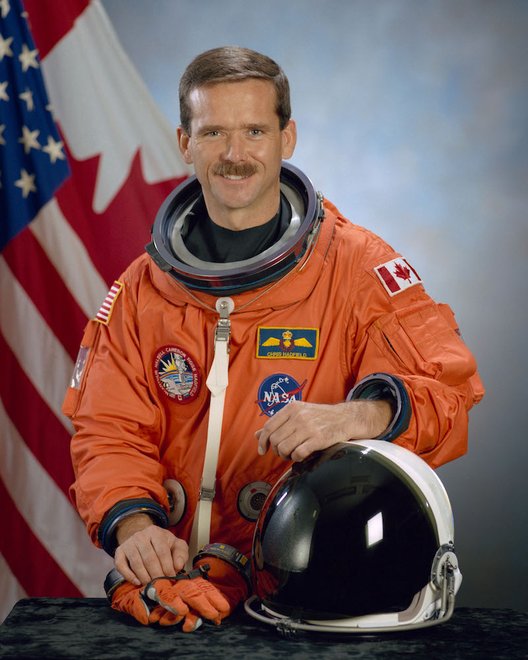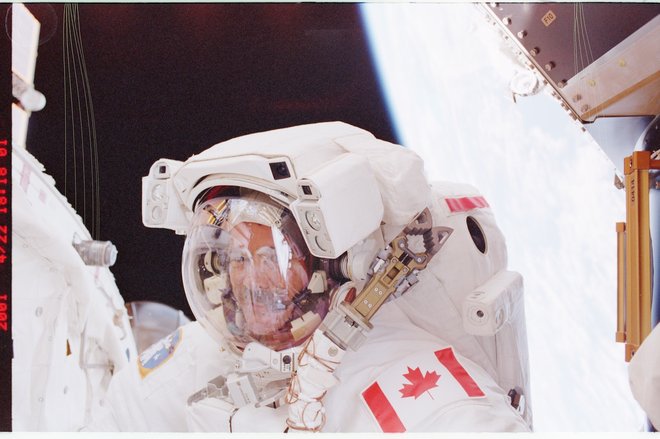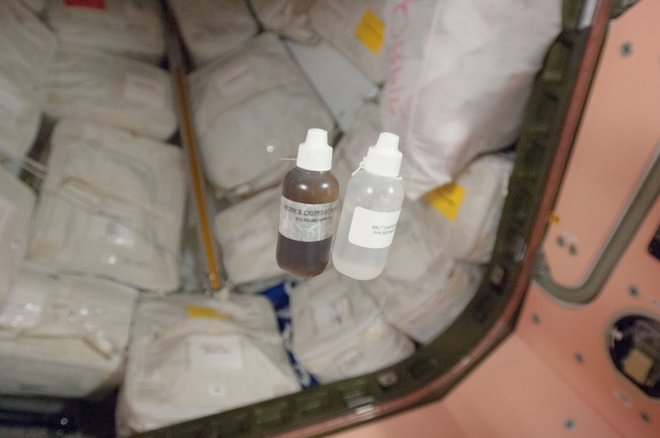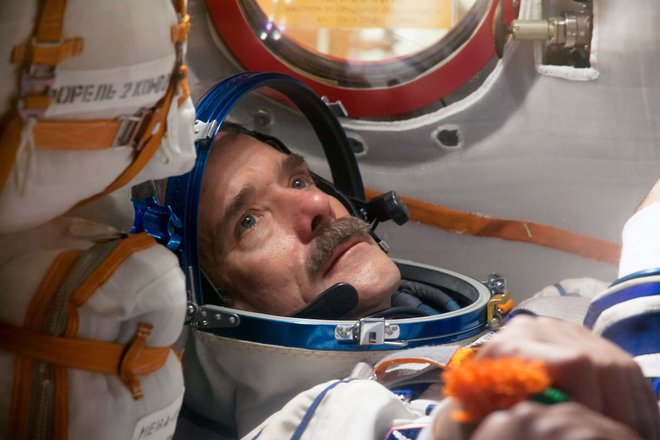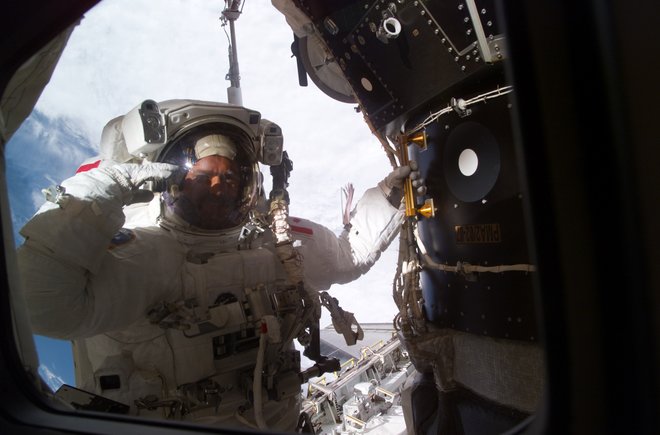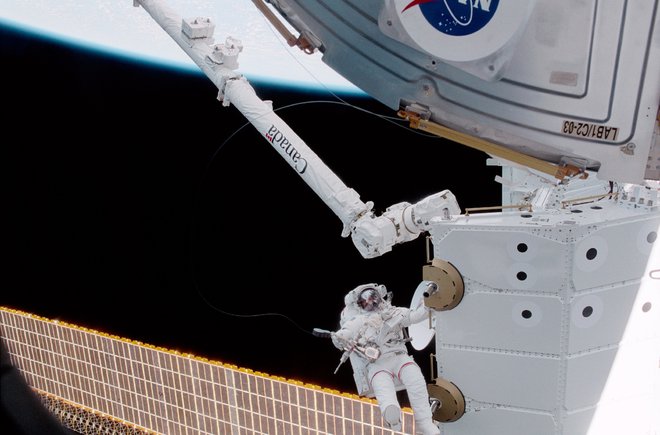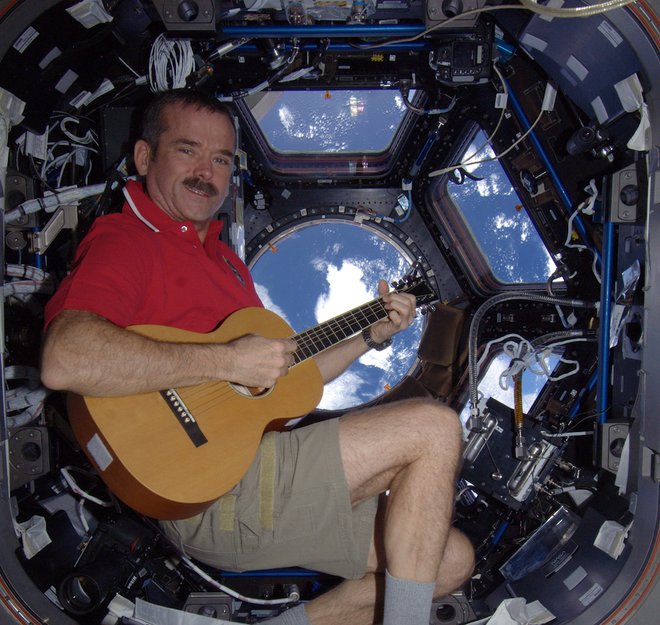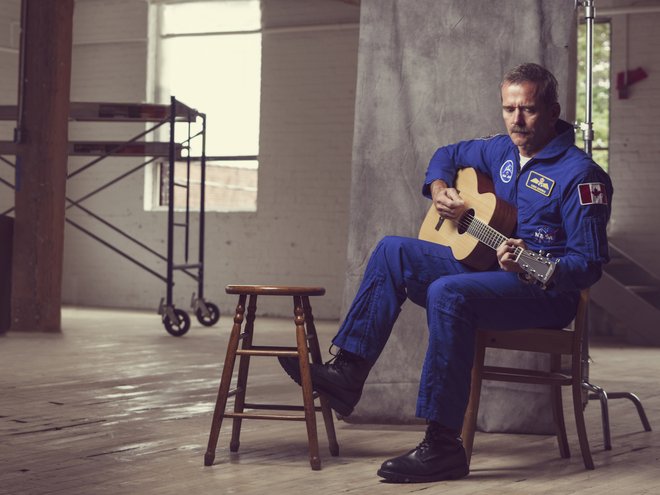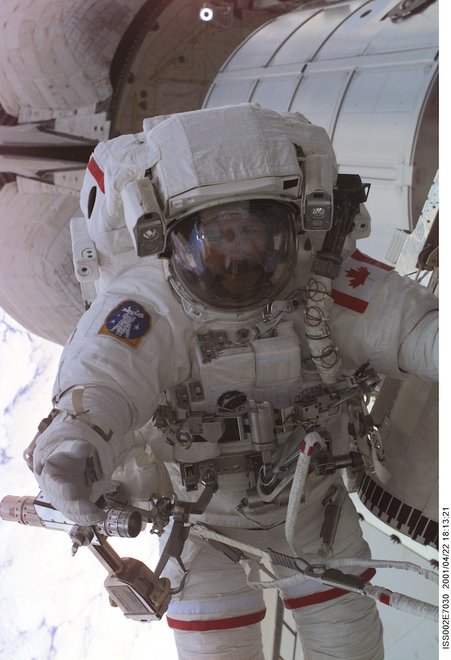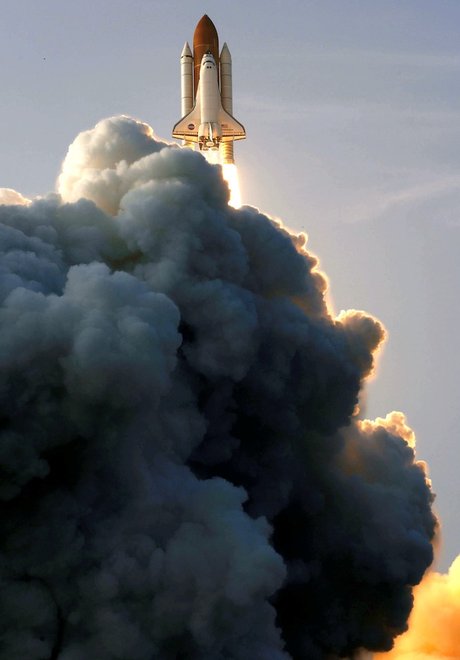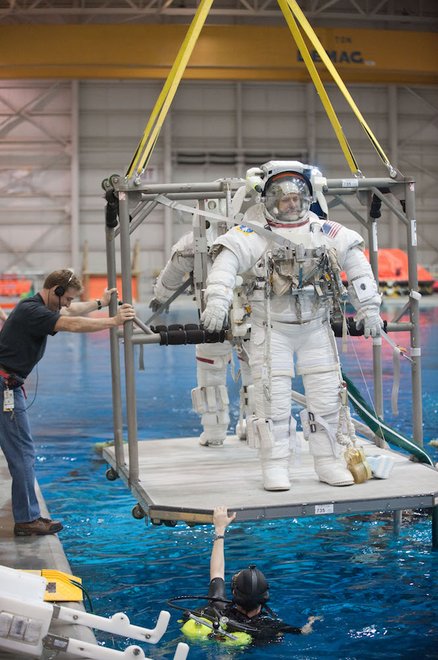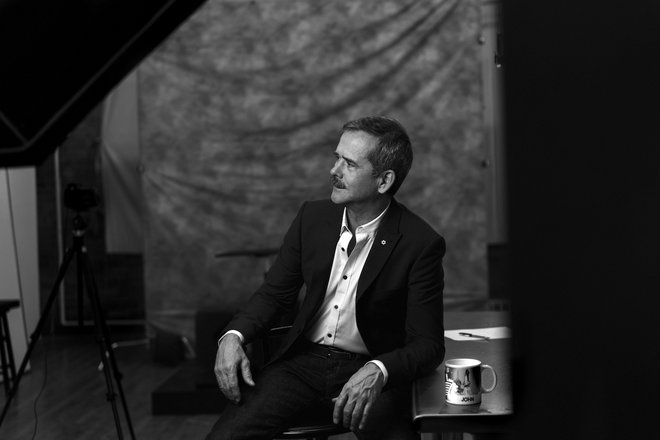With the miracle of the world outside your window
As one of the world’s most well-known astronauts, who could be better qualified to talk to us about beauty than Chris Austin Hadfield? The 59-year-old Canadian became famous for his tweets from space—yes, they have Twitter there. When he’s not chatting with the Queen or covering David Bowie’s Space Oddity in zero-g, he shares what it’s like to live and work in space via YouTube and social media. He calls us via Facetime. While we don’t get see his friendly Schnauzer face, his voice is warm and affectionate. Three missions into space, two spacewalks, a spaceship under his command, and exactly thirty minutes to talk about beauty, time, and fear in space.
Eva Holzinger: Is weightlessness beautiful?
Chris Hadfield: To be weightless means having a superpower. It’s magic. You can fly, float, you can be Spiderman or Wonder Woman or whatever you want—the greatest ballerina that ever danced. It’s graceful, it’s elegant. It makes you laugh, makes you playful. Emotions come closer to the surface, you cry or laugh more quickly. For me, it’s a feeling of privilege, reverence and clarity. It’s an evocative and human place to be.
You call space a human place. Don’t you feel out of place there?
I served as an astronaut for 21 years. I definitely felt at home on my third flight, after around a month. Being weightless feels so natural—much more natural than constantly being crushed to the ground by an invisible force called gravity. It’s much nicer to be weightless with the miracle of the world outside your window.
Having our beautiful planet Earth right outside your window is certainly a very special shift in perspective. How does a spaceship change the way you think?
With the distance, and also because you go around the earth so swiftly, you become intensely aware of the fact that it’s just one place; a place of unity, a place that makes us creatures the same. It’s not so big—that’s a very important world view to have. I’m sure Vienna looks enormous to an ant. And ant could never have a comprehension of Vienna. But Vienna exists, and it’s beautiful!
“My job as an astronaut gives me a mandate to share that rare and new view of the world.”
A bee or a hawk might have a better appreciation of Vienna ...
Yes, they have more clarity because of their ability to fly. If you’re just that little ant, you’ve only got a little bit of pavement and your ant hill; that’s all that matters, the rest is theoretical and irrelevant to the ant. The myopia that comes in the normal passage of a human life can lead to pretty bad decision-making and poor treatment of other people. So the perspective of seeing the entire world for what it actually is is vital for everyone. The more clearly you can see the artistry and the inherent beauty and reality of the world, the better a chance we have of making good decisions collectively instead of local, narrow, jealous ones.
The broader the perspective, the better people we are?
Your understanding of the world is a mixture of the places you’ve been to. And that’s a small set, compared to the size of the world. That’s intermingled with what everyone else told you to think about the world. When everything is theoretical, we tend to treat other people poorly. I’ve been around the world 2,650 times. This gave me a clarity of perception of the world without any filter, without adjectives, just the reality of the world itself and without anyone telling me what to think. My job as an astronaut gives me a mandate and imperative to try and share that rare and new view of the world as clearly as I possibly can.
“You can see something ugly in everything, if you want to.”
In a YouTube video you say that the emptiness of space is sort of like “the opposite of air.” Space is cold, dark, full of radiation. What’s ugly in space?
You can see something ugly in everything, if you want to. What I see in the mirror (laughs). A gray, hazy day—the whole world has gray smear on it. The Aral Sea on the border between Russia and Kazakhstan, the fourth biggest sea on earth—we dried it up in one generation. We turned it into a stinking wasteland, just because of myopic, arrogant greed. It’s important to deal with that ugliness, think about why it’s there, try and do what you can to minimize the ugliness in your life. But for the rest, focus on the beautiful side of things.
What is beautiful to you personally?
For me personally, something is beautiful because you know how hard it was to create or do, even though it isn’t intrinsically beautiful. It’s not pretty, but it’s beautiful. There is a beauty in accomplishment, a beauty of appreciation. It’s about precision, complexity, unlikeliness. Life itself is beautiful for an astronaut looking out of that window. That’s what makes being in space so magical for me, because it was so exquisitely hard to get there.
“Music is unwritten history, it’s a way to communicate where no words are adequate.“
Looking out the window is said to be astronauts’ favorite activity. Was it the same for you?
Yes, because it’s unbelievable over and over again. The sunrises happen in 15 seconds, as if someone took a darkened crescent and started pouring a rainbow on it until it’s spread with all the colors. And then this incredibly bright hot yellow-and-orange sun explodes in the middle. It’s glorious, raw, natural beauty. On the dark side, the glow of the night horizon and the gleaming lights of Seoul and Paris and Las Vegas are beautiful as well. The world becomes more and more beautiful every time you go around it.
What’s the most fitting music for those beautiful magic moments?
Our understanding of music is even more personal than our understanding of beauty. There is an enormous library of music and I enjoy a lot of it, from the Talking Heads to Richard Strauss. When we were undocking from a Russian space station Mir—it was my first flight—we were playing this beautiful old folk song called Those Were The Days, My Friend. It exists in multiple languages and it’s about the importance of the interrelation of people and the joy and sadness of that and the reflection on times past. “Those were the days my friend, we thought they’d never end. We’d sing and dance forever and a day.” It’s unwritten history, it’s a way to communicate where no words are adequate.
„I was never afraid, instead I was ready, which I think is a much better way to go through life.“
There was also a guitar onboard the spaceship?
I’m glad there’s a guitar up there — I wrote and recorded an entire album. It’s a great way to appreciate where you are and to explain it to yourself. As we were docking at the Russian space station Mir, we were listening to the „2001: A Space Odyssey“ soundtrack, „Also sprach Zarathustra“ and the „Blue Danube Waltz“.
In the course of ISS Expedition 35 you spent five months in space. Every day was planned down to the minute by the mission control centers on Earth. How did you find time to be creative?
There is a red line moving across the computer screen that tells you what you’re doing now and what you’ll be doing in five minutes. It calculates around seven and a half to eight hours of sleep. And that’s the time I would steal. That was the only real free time I had, so that I could look at and photograph the world instead, write, and record music. The science, exploration, and engineering are really important, but to me the human side of it, the sharing side of it is important as well. If you go to space, you represent 7.5 billion people. You’re not there for yourself—it’s a life of service, you’re putting someone else’s needs desires ahead of your own.
“When the Queen wakes up, we wake up.”
Can you feel the beauty of a certain timelessness or endlessness in space?
You’re traveling at eight kilometers per second: In the time it takes to have dinner—one and a half hours—you travel around the world; you cross continents in the time it takes to sip a cup of tea. In nine minutes you’ve traveled from New York to Los Angeles; you see a sunset or a sunrise every 45 minutes. You see the whole world majestically, silently, just pouring by. You see all of that history, culture, climate, geography, geology—you can see where the ice ages, the volcanoes were, you can see huge asteroids impacts and the like. What is “us,” what is “them”? What is old, what is new? What does four billion years actually mean? From this perspective our sense of time is no longer valid and it becomes very difficult to maintain artificially drawn and nationalistic borders.
Your job comes with a lot of risks. What scares you? How do you deal with fear?
It is an extremely dangerous life. I’ve lost many friends. During the launch, with the enormous rockets firing underneath you, the odds of dying on my first space shuttle launch were 1 in 38. During the 135 flights, we blew up two space shuttles and killed two crews.
Fear and danger—like beautiful and pretty—are not the same thing, but we often blur them together. Fear is an instinctive reaction to a situation that you aren’t ready for. Things aren’t scary, it’s people who are scared. I was never afraid, instead I was ready, which I think is a much better way to go through life.
In space, you experience the cycle of day and night 16 times within 24 hours. Which time cycle do you follow?
A day in space is driven by non-typical and non-natural cues, like for shift workers—their patterns are being driven by something non-natural. Or people that live in the far north or south, or in a submarine; they are forced to find a pattern not driven by a sunrise or sunset. We astronauts are a kind of bizarre extension of those people. You chose a time zone on Earth and live by that. As our support teams are just outside of Houston and Moscow, we decided to split the difference and live according to Greenwich Mean Time (London, England). When the Queen wakes up, we wake up.
Thank you for the interview!

